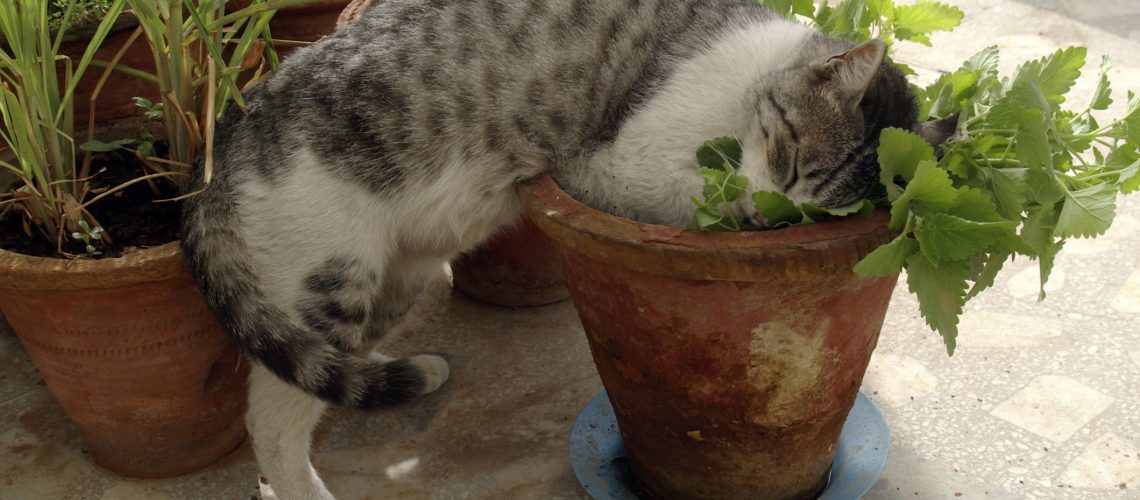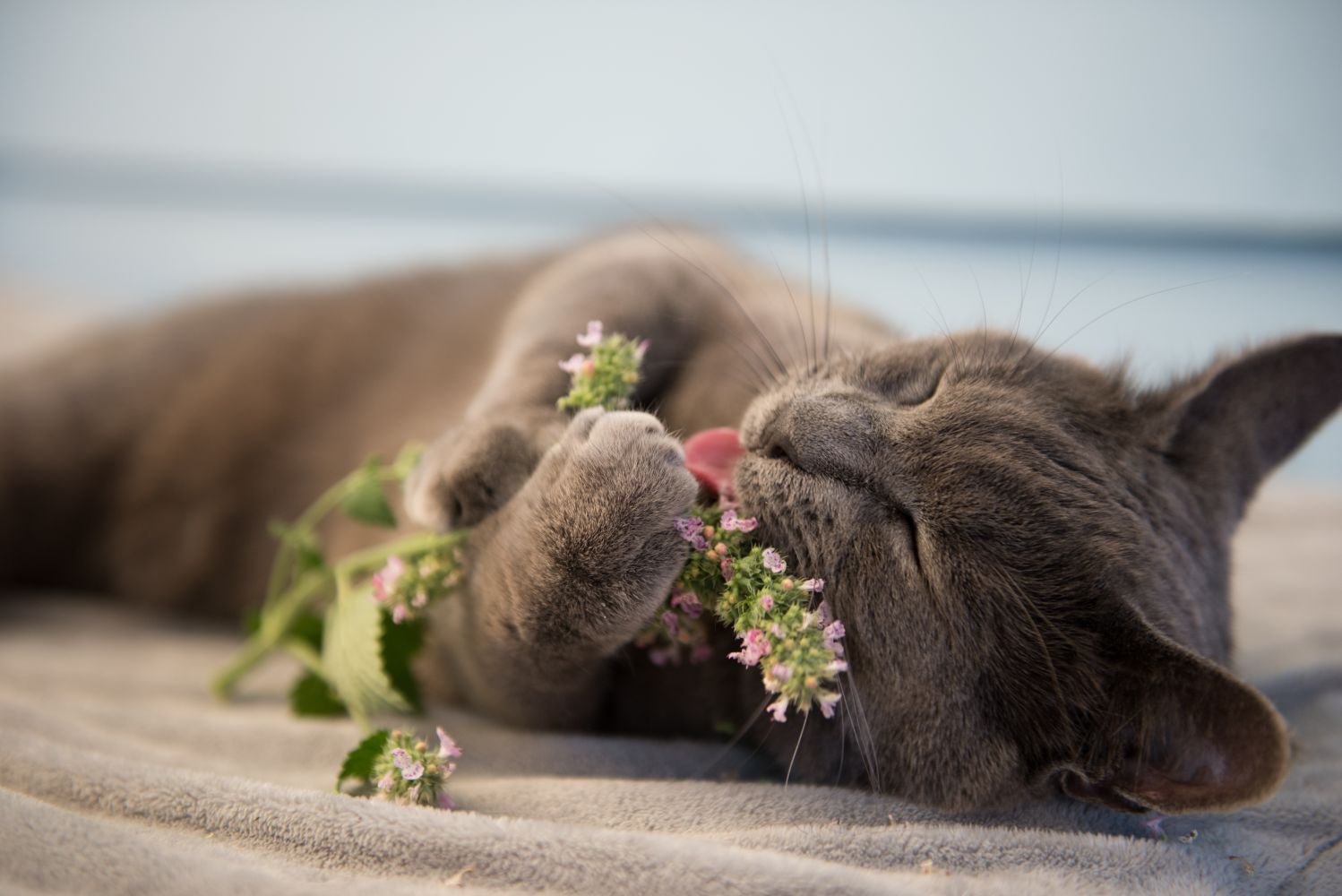Are you a cat lover? Do you want to ensure the safety and well-being of your feline friend? Then, get ready to uncover the truth about catnip! This seemingly innocent plant has been a subject of curiosity among pet owners for years. But why is understanding its effects so important? Well, imagine being able to provide your beloved kitty with hours of pure joy and relaxation, all while ensuring their safety. In this article, we will delve into the fascinating world of catnip, exploring its benefits, potential risks, and everything in between. So, whether you're a seasoned cat owner or just curious about our feline friends, keep reading to discover the secrets behind this enchanting herb. Get ready to be amazed by what you'll learn!
Key Takeaways:
- Catnip is generally safe for cats to consume or interact with.
- Not all cats are affected by catnip, as sensitivity to its effects is genetic.
- Catnip can provide mental stimulation and entertainment for cats.
- Excessive ingestion of catnip can lead to digestive upset in some cats.
- It's important to monitor your cat's reaction to catnip and use it in moderation.
What is Catnip and Why Do Cats Love It?
Catnip, also known as Nepeta cataria, is a herb that belongs to the mint family. It has a strong smell that many cats find irresistible. When cats come into contact with catnip, it can trigger a range of behaviors and reactions.
There is a compound in catnip called nepetalactone that affects the brains of cats. This compound acts as a stimulant and can make cats feel excited or even euphoric. It can also help them relax and relieve stress.
Why do cats love catnip?
Not all cats are affected by catnip, but for those who are, it can be quite enjoyable. The scent of catnip triggers a response in the part of the brain that controls emotions and behavior in cats. This response can vary from cat to cat, but some common reactions include:
- Rubbing against the catnip
- Rolling around on the floor
- Purring and meowing
- Jumping and playing energetically
It's important to note that not all cats respond to catnip in the same way. Some may show no interest at all, while others may become hyperactive. The sensitivity to catnip is believed to be genetic, so it varies from one individual cat to another.
Is Catnip Safe for Cats to Play With and Eat?
Catnip is generally safe for cats to play with and eat. In fact, it can provide them with mental stimulation and enrichment. However, it's important to use moderation when giving your cat access to catnip.
Playing with Catnip
When cats play with catnip, they may become very excited and may engage in rough play. It's important to supervise their playtime to ensure they don't accidentally hurt themselves or damage furniture. Additionally, some cats may become possessive over their catnip toys, so it's best to give each cat their own toy to avoid any conflicts.
Eating Catnip
While eating small amounts of catnip is generally safe for cats, consuming large quantities can lead to digestive issues such as vomiting or diarrhea. If your cat ingests a large amount of catnip and shows any signs of discomfort, it's best to consult with a veterinarian.
In conclusion, catnip is safe for cats to play with and eat in moderation. It's a great way to provide mental stimulation and entertainment for your feline friend.
How Does Catnip Affect a Cat's Behavior and What Are the Signs?
The Science Behind Catnip's Effect on Cats
Catnip, also known as Nepeta cataria, is a herb from the mint family that contains a compound called nepetalactone. When cats come into contact with catnip, whether by smelling or ingesting it, this compound binds to receptors in their nasal tissue, which then sends signals to the brain. This interaction triggers a series of behaviors and reactions in cats.
Signs That Your Cat is Affected by Catnip
When a cat encounters catnip, there are several signs that indicate they are affected by it. One common behavior is rolling or rubbing against the catnip source, such as a toy or dried leaves. This behavior helps them release more of the scent and intensify the effects. Some cats may also become more playful and energetic, engaging in activities like chasing toys or jumping around. Others may exhibit calmness and relaxation instead, often seen as lounging or stretching out comfortably.
It's important to note that not all cats respond to catnip in the same way. While about 50-75% of cats are affected by catnip's allure, kittens under six months old and senior cats tend to be less responsive. Additionally, some breeds may have a higher sensitivity to catnip than others.
Are There Any Risks or Side Effects of Giving Cats Catnip?
Potential Risks Associated with Catnip Use
In general, catnip is considered safe for cats and does not pose any significant risks when used appropriately. However, it's crucial to monitor your cat's reaction and usage to ensure their well-being.
Possible Side Effects of Excessive Catnip Exposure
While rare, excessive exposure to catnip can lead to some side effects in cats. These may include vomiting, diarrhea, or an upset stomach. If you notice any of these symptoms after your cat has been exposed to catnip, it is advisable to limit their access and consult a veterinarian if the symptoms persist.
It's worth mentioning that moderation is key when it comes to giving your cat catnip. Providing occasional exposure and allowing them breaks between sessions can help prevent overstimulation and potential side effects.
Do All Cats Enjoy the Effects of Catnip or Are Some Not Affected?
The Genetics Behind Catnip Sensitivity
While a majority of cats are affected by catnip, there are some feline friends who do not respond to its allure. This difference in sensitivity is believed to be influenced by genetics.
Cats Who Don't Respond to Catnip
Approximately 25-50% of cats do not show any response to catnip due to genetic factors. This lack of sensitivity does not indicate any health issues or problems with the cat; it simply means they lack the specific receptors that interact with nepetalactone.
If your cat falls into this category, don't worry! There are other alternatives available for stimulating their playfulness and providing enrichment.
How Often Should You Give Your Cat Catnip? Guidelines for Usage
Frequency Recommendations for Catnip Use
When it comes to giving your cat catnip, moderation is key. While it's generally safe, using it too frequently may diminish its effects over time.
Recommended Usage Frequency
For most cats, offering them catnip once every two weeks is sufficient to maintain their interest and enjoyment. However, individual responses may vary, so observing your cat's behavior during and after exposure can guide you in determining the ideal frequency.
Remember, it's essential to provide variety in your cat's playtime and enrichment activities. Incorporating different toys, interactive games, and scratching posts alongside occasional catnip sessions can keep them engaged and entertained.
Are There Any Alternatives to Catnip for Stimulating Cats?
Exploring Other Options for Feline Stimulation
While catnip is a popular choice for stimulating cats, there are alternative options available that can evoke similar responses and provide enrichment.
Alternative Stimulants for Cats
Silver vine and valerian root are two examples of plants that can have a similar effect on cats as catnip. These alternatives contain compounds that trigger reactions in cats, leading to behaviors like rolling, playing, or increased energy levels. Some cats may respond more strongly to these alternatives compared to catnip.
Additionally, interactive toys, puzzle feeders, and regular play sessions with their human companions can also be effective ways to stimulate your feline friend's natural instincts and keep them mentally and physically active.
By exploring these alternatives alongside occasional catnip usage, you can provide a well-rounded environment that keeps your cat engaged and entertained.
In conclusion, catnip is generally safe for cats to enjoy in moderation. It can provide them with entertainment and relaxation, but too much of it may cause mild digestive issues. As responsible pet owners, it's important to offer catnip sparingly and monitor our furry friends' reactions.
Are there any dangers to catnip?
While drinking catnip tea in small amounts is generally safe, smoking or consuming large doses of catnip can be potentially dangerous. This can lead to side effects such as headaches, vomiting, and a general sense of feeling unwell.
Is catnip really safe for cats?
Cats have a strong affinity for catnip, and it is completely safe for them to consume. There are no harmful substances in catnip that can harm your cat. In the unlikely event that your cat were to consume a large amount of catnip, it could potentially cause a slight stomach discomfort, but this is highly unlikely to occur.
Why can't humans use catnip?
The fact that insects alter their behavior in response to nepetalactone, even if it has a negative effect, implies that they have receptors for this compound. However, smoking catnip does not have any psychoactive effects on humans and can actually cause discomfort such as headaches and vomiting if consumed in excess, whether in the form of smoking or as a tea.
Why does catnip make cats crazy?
Catnip contains a compound called nepetalactone, which activates specific brain chemicals associated with mood and joy. This feeling of euphoria has been likened to the effects of hallucinogenic drugs on humans.
What does catnip do to a cat's brain?
Scientists believe that the herb affects receptors in a cat's brain associated with happiness. Surprisingly, when cats consume it, they actually become more relaxed. Typically, cats respond to catnip by engaging in playful behaviors such as rolling, flipping, and rubbing against objects, eventually becoming completely relaxed and potentially vocalizing their excitement.
Does catnip have negative effects on cats?
There is no proof that catnip is dangerous for cats or young kittens. However, if they consume large amounts of fresh or dried catnip leaves, they may experience an upset stomach and potentially vomit or have diarrhea.

















